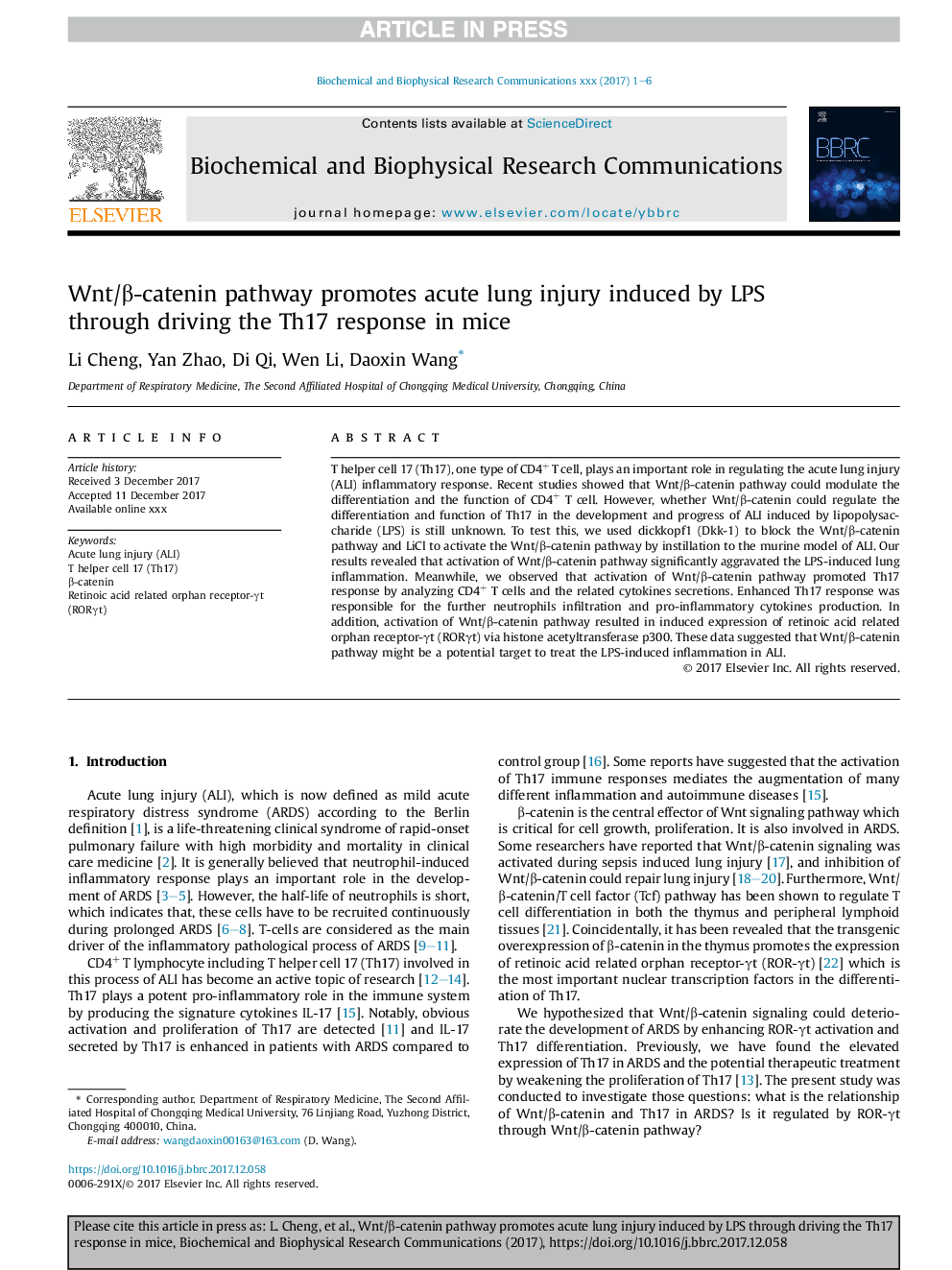| Article ID | Journal | Published Year | Pages | File Type |
|---|---|---|---|---|
| 8295494 | Biochemical and Biophysical Research Communications | 2018 | 6 Pages |
Abstract
T helper cell 17 (Th17), one type of CD4+ T cell, plays an important role in regulating the acute lung injury (ALI) inflammatory response. Recent studies showed that Wnt/β-catenin pathway could modulate the differentiation and the function of CD4+ T cell. However, whether Wnt/β-catenin could regulate the differentiation and function of Th17 in the development and progress of ALI induced by lipopolysaccharide (LPS) is still unknown. To test this, we used dickkopf1 (Dkk-1) to block the Wnt/β-catenin pathway and LiCl to activate the Wnt/β-catenin pathway by instillation to the murine model of ALI. Our results revealed that activation of Wnt/β-catenin pathway significantly aggravated the LPS-induced lung inflammation. Meanwhile, we observed that activation of Wnt/β-catenin pathway promoted Th17 response by analyzing CD4+ T cells and the related cytokines secretions. Enhanced Th17 response was responsible for the further neutrophils infiltration and pro-inflammatory cytokines production. In addition, activation of Wnt/β-catenin pathway resulted in induced expression of retinoic acid related orphan receptor-γt (RORγt) via histone acetyltransferase p300. These data suggested that Wnt/β-catenin pathway might be a potential target to treat the LPS-induced inflammation in ALI.
Keywords
Related Topics
Life Sciences
Biochemistry, Genetics and Molecular Biology
Biochemistry
Authors
Li Cheng, Yan Zhao, Di Qi, Wen Li, Daoxin Wang,
